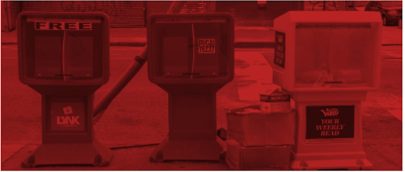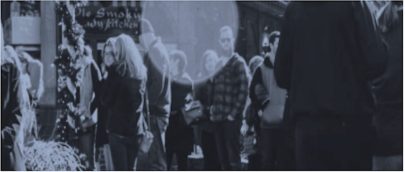Reviving Community News in Illinois
Illinois Senator Steve Stadelman’s bipartisan bills aim to revitalize community news and rebalance tech-publisher power dynamics.
Sen. Steve Stadelman (D-Rockford) has introduced two bills that provide a comprehensive approach to reviving community news, while rebalancing power between technology companies and publishers. They focus on public policies that are First-Amendment-friendly, guard against political manipulation and preserve the editorial independence of local newsrooms. They are strictly nonpartisan, and flowed from the analysis and recommendations of the Illinois Local Journalism Task Force.
The Strengthening Community Media Act
Employment retention credit for local reporters – To help ensure that communities have local coverage, news organizations would receive a refundable tax credit for each local reporter. The amount would be up to 50% of the wage (up to a maximum of $25,000 subsidy). No newsroom would be able to get more than 150 slots for the credit. Nonprofit and commercial newspapers, digital news sites and broadcasters are eligible. This helps newsrooms maintain staffs and creates incentives for news organizations to invest in community journalism.
Tax credit for small businesses that advertise with local news – Restaurants, grocery stores and other small businesses in Illinois would get a tax credit for advertising with local newspapers, broadcasters or news websites of their choice. The credit would provide a subsidy of up to $5,000 for advertising spending of up to $10,000 (a 50 percent rebate) for small businesses with fewer than 50 employees. The small businesses select which eligible news outlets to advertise in and whether the ad campaigns are effective enough to continue.
Government advertising supporting community media – The state government already spends substantial amounts of money on public service advertising through social media, search engines, national media and local media. The state would be required to spend at least 50 percent of its public service advertising through community and ethnic media. It also would require that the state regularly disclose where its advertising is being spent. Government agencies can opt out if they show that the requirement would undermine the goals of their marketing campaigns.
Disclosure for purchases of newspapers by out-of-state companies – About half of the daily newspaper circulation is owned by a hedge fund or private equity firm. They often eviscerate newsrooms. This provision establishes a 120-day waiting period on the sale of a newspaper to an out-of-state company. This would give some time to local stakeholders to organize efforts to acquire the newspaper. It requires that notification of an impending sale be provided to employees of the news organization, the Department of Commerce and Economic Opportunity and any in-state nonprofit organization in the business of buying local news organizations.
Creates scholarships for students who work at local news in Illinois – Scholarships will be provided to students who pledge to work in an Illinois newsroom for at least two years, with preference to those who work in under-served areas, as defined by the Illinois Student Assistance Commission. The scholarship is for people who went to high school in Illinois.
In all cases, the legislation includes provisions to ensure that the benefits go to news organizations that are actually providing local coverage, and not sites that are controlled or largely funded by political groups.
Illinois Journalism Preservation Act
The Illinois Journalism Preservation Act would force major internet platforms, primarily Google and Meta, to pay news publishers for links published and/or posted on the internet platforms’ sites. Based on efforts in Australia and Canada, the bill is intended to address the market imbalance between large platforms, who control the terms by which information is posted online, and the news publishers who rely on digital publishing for access to audience members and advertisers.
A pool of funds, called an “allocation share,” would be negotiated between platforms and all of the qualified local news outlets. Once the allocation share is established, qualified news outlets receive payments equal to the proportion of their links shared on the platform’s websites compared to the overall number of links shown to platform users in the state of Illinois within a month.
News outlets must give notice that they qualify. News outlets also must give notice to their employees that they are pursuing platform payments and publish annual reports on their website that show how much money a news outlet received from a platform and how the news outlet spent the funds. Large news outlets are required to spend at least 70% of proceeds on paying or hiring journalists or “support staff,” a natural person who performs a support function like bookkeeping or administration for a newsroom.





